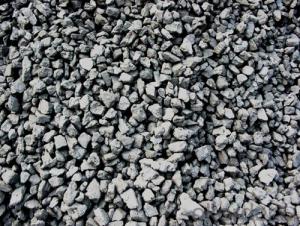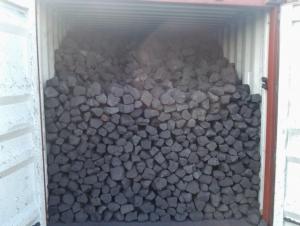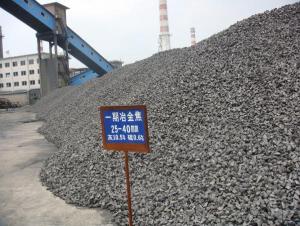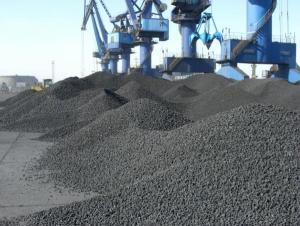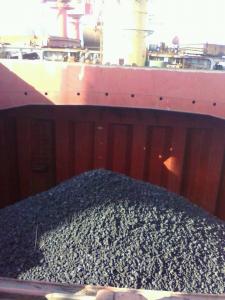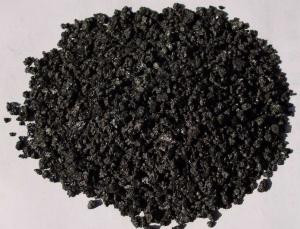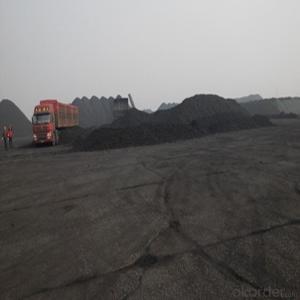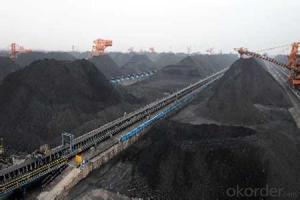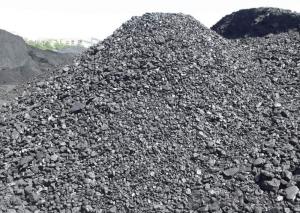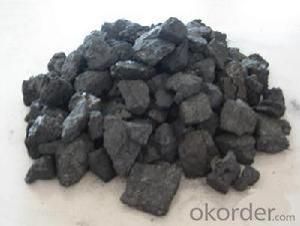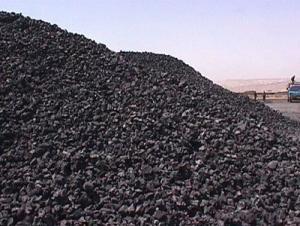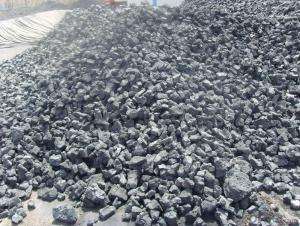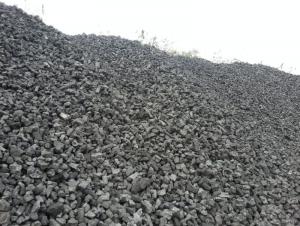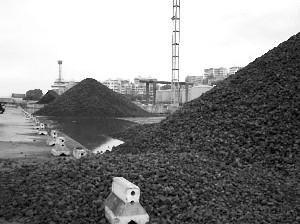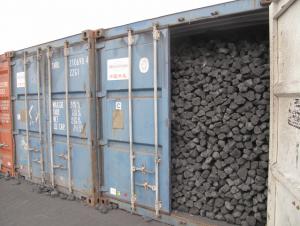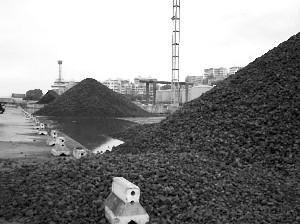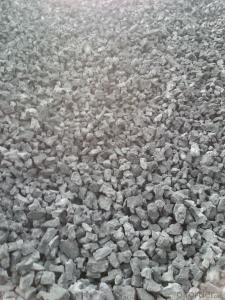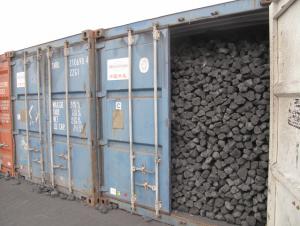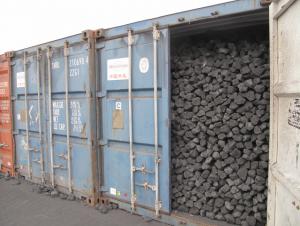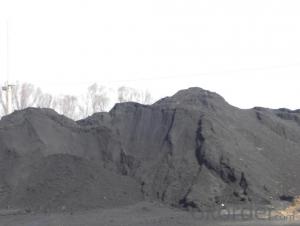Metallurgical Coke 20-80mm
- Loading Port:
- Tianjin
- Payment Terms:
- TT OR LC
- Min Order Qty:
- 1000 m.t.
- Supply Capability:
- 100000 m.t./month
OKorder Service Pledge
OKorder Financial Service
You Might Also Like
Specification
Metallurgical coke is produced by carbonization of coals or coal blends at
temperatures up to 1400 K to produce a macroporous carbon material of
high strength and relatively large lump size.
Notes:
Metallurgical cokes must have a high strength to support heavy loads in
the blast furnace without disintegration. Metallurgical coke is also used as
filler coke for polygranular carbon products.
We have our own factory to supply all kind of metallurgical coke at good price.
If any need,pls contact us.
Product Description: | Metalurgical coke | |||
Raw Material Base: | Coking coal | |||
Specifications: all on ISO Standard and on Dry Basis except Total Moisture | ||||
Description | Unit | Guaranteed value | ||
Total Moisture (A.R) | % | 10.0 | Max | |
Ash | % | 13.0 | Max | |
Volatile Matter | % | 1.5 | Max | |
Fixed Carbon | % | 85.5 | Min | |
Sulfur | % | 0.6 | Max | |
Size 10-30MM(as customer’s requirement) | % | 90.0 | min | |
Abrasive resistance | % | 10 | around | |
Crushing strenth | % | 80 | around | |
Packing | In plastic bag or As customer’s requirement | |||
Produce process | The coke making process involves carbonization of coal to high temperatures (1100°C) in an oxygen deficient atmosphere in order to concentrate the carbon. | |||
Application | As the Reducing agent in the steel-making and foundry industry | |||
Production | 50000mt/month | |||
Main market | Southeastern Asia,Middle east.Australia,part of Europe and so on . | |||
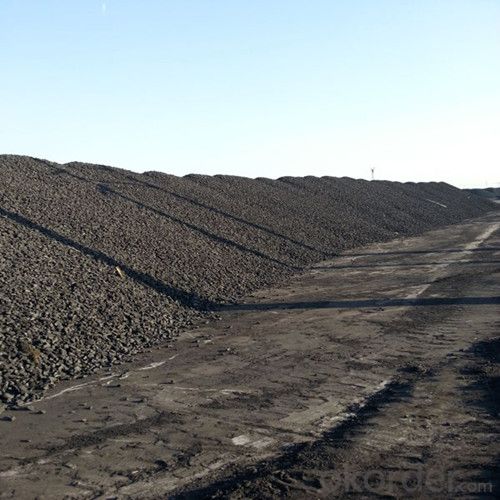
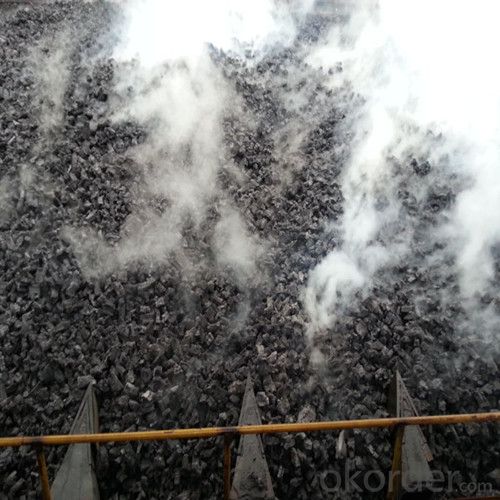
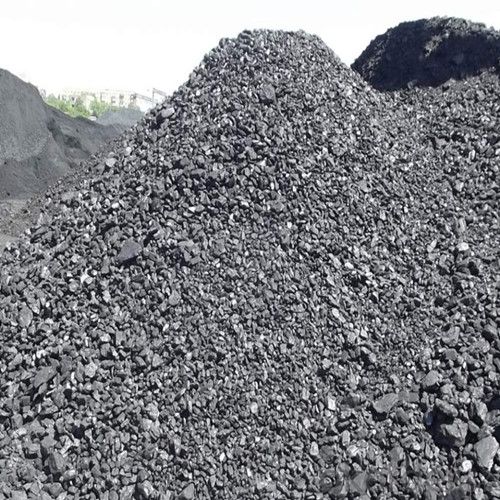
- Q: What is the density of coke?
- Do you want to transport by rail? Ha ha, you might as well ask the freight forwarding clerk, he / she will tell you the various models of the volume and the weight can be installed, the conversion of the density of the pile is more accurate.
- Q: What is the concept, relationship and difference between coke and coke? The main difference and contact, thank you
- 6, the horizontal type coke oven drying machine(7) gas purification circulating water.... supporting technology(8) dry cooling technology of interlayer water-cooled steam.(9) microcomputer precise dosing system
- Q: Used in a restaurant?Dry or dry carbon carbon, coke or coke, and I do not know which word is a word of this sound. The use of coke for iron making. They are more than 1000 yuan price.The main problem is: dry carbon is coke?Toxic smoke, then the chimney can not do? Can I use the blower?
- Coke is a special and molten iron cupola coke. Coke is the main fuel cupola molten iron. Its role is to melt the burden and make the hot metal overheating, the support column to maintain good ventilation. Therefore, the foundry coke should have large blocks, low reactivity, porosity is small, with impact crushing strength, low ash and sulfur enough.
- Q: Coke indicators are divided into grades
- Coke is a solid product of high temperature carbonization, the main component is carbon, is a crack and irregular pore structure (or porous). The number of cracks has a direct impact on the strength and crushing strength of the coke, the index is generally measured in terms of crack degree (the number of cracks in the unit volume coke).
- Q: How coal is turned into coke in the coking chamber
- The kiln chamber wall set to continue burning, and some heat incoming kiln (indirect heating). High temperature gas flow (800 DEG C, is mixed with coal pyrolysis, chemical products into the fabric of unburned.
- Q: Why does Coke provide heat when it is fired, it reacts only at high temperatures and why it is needed to provide heat?Which is the exothermic reaction, carbon dioxide or carbon monoxide?
- Yes;To restore the Fe reaction to provide heat, this reaction requires a higher heat, but the heat is high, the heat is not high enough to provide; so adding coke, more convenient to raise the temperature;
- Q: In the coke analysis index, M40% and M25% respectively mean what?
- (2) mainly used in: Coal Science and Technology (first level), coal processing and utilization (level two), coal chemistry and coal quality analysis (level three)
- Q: Natural gas can replace coke smelting pig iron
- Coke at high temperature (also some blast furnace pulverized coal, heavy oil, natural gas and other auxiliary fuel) in carbon with bubbling air oxygen in the combustion of carbon monoxide and hydrogen generated in the furnace, removing the rise in iron ore in the process of oxygen, thereby reducing iron. The molten iron is released from the taphole. An iron ore, which is a mixture of non - reducing impurities, such as limestone, to form a slag from the slag. The produced gas is discharged from the top of the furnace, and is used as a fuel for a hot blast stove, a heating furnace, a coke oven, a boiler, etc.. Blast furnace smelting is the main product of pig iron, as well as by-products of blast furnace slag and blast furnace gas.
- Q: What is coke? What is the use?
- The use of coke coke is mainly used in blast furnace and used for copper, lead, zinc, titanium, antimony, mercury and other non-ferrous metal smelting of blast furnace, reducing agent, heating agent and columnar skeleton blast furnace adopts coke instead of charcoal.
- Q: Mechanism of carbon and coke is not the same as the price which high?
- Stick out almost all with crack. And they say the yield of 180 kg / hour also is very different, not only the normal production hours when the output of 100 kilograms. I had also directed his blog to the thought, the personality is good. It seems that I really fooled. Later on the Internet listen to friends that they and Beijing Shouke, and sell equipment are a group of Shouke and powerful equipment are factory Hebei Ba Chau do, the technician will not help garbage shit escape love who are also the factory to help Hebei Ba Chau cultivated. It is the general black crow. The wolf escaped, and ventured into the mouth. I put my story and I just hope I don't have the same people cheated, Juyuan suzerain is the biggest liar. Equipment market is too dirty, the bone charcoal mechanism shall not ah!
Send your message to us
Metallurgical Coke 20-80mm
- Loading Port:
- Tianjin
- Payment Terms:
- TT OR LC
- Min Order Qty:
- 1000 m.t.
- Supply Capability:
- 100000 m.t./month
OKorder Service Pledge
OKorder Financial Service
Similar products
Hot products
Hot Searches
Related keywords
